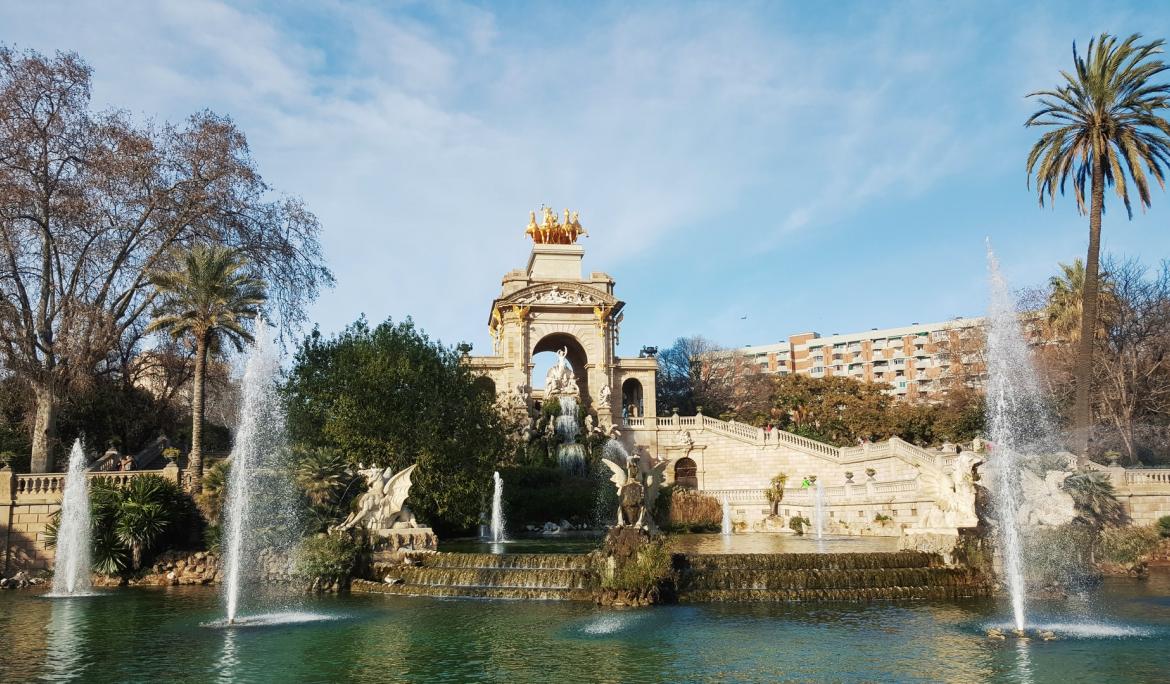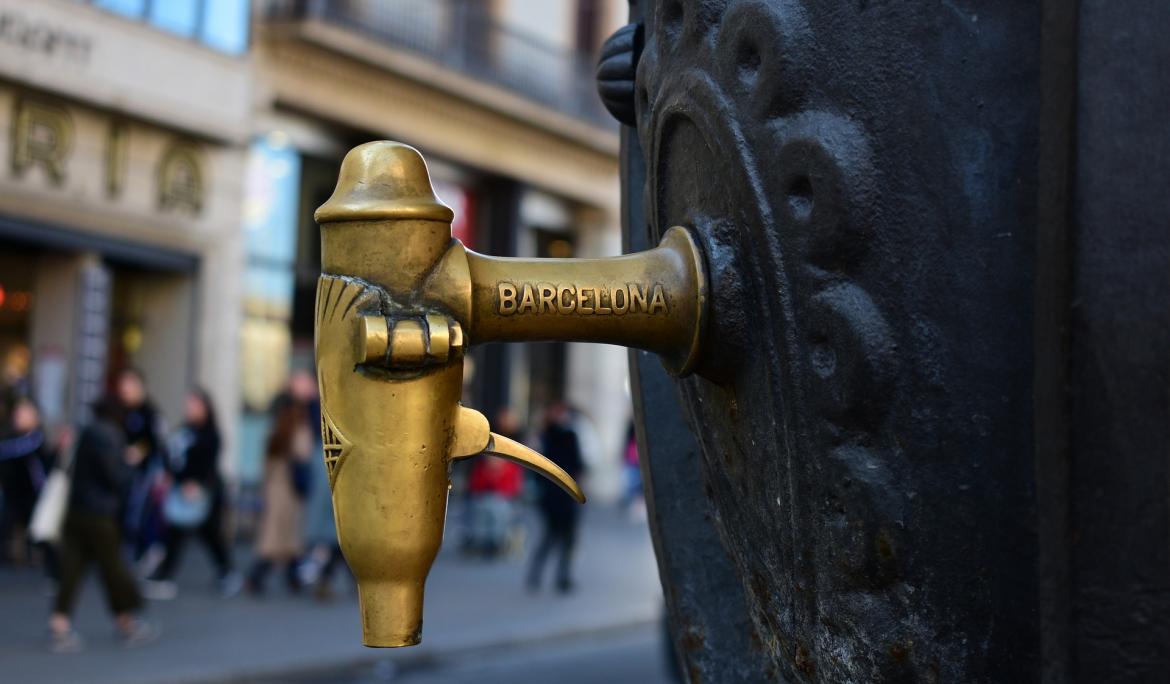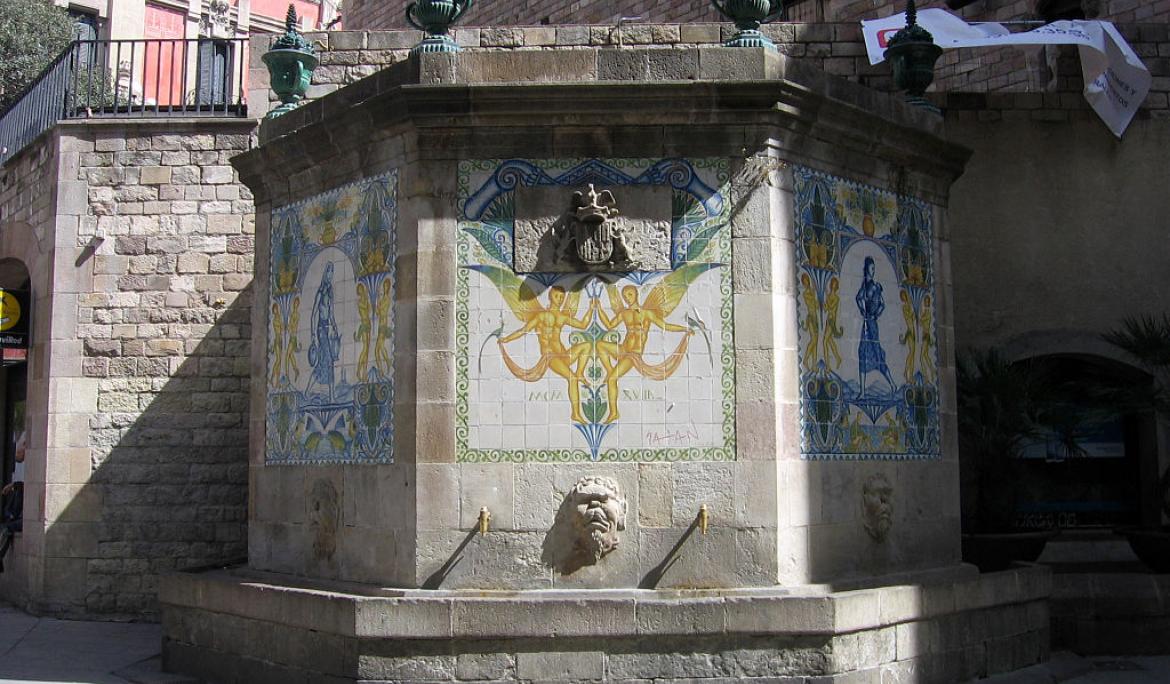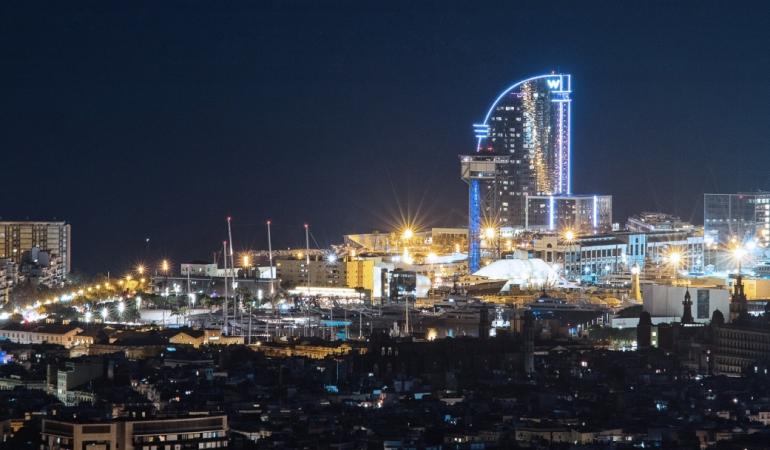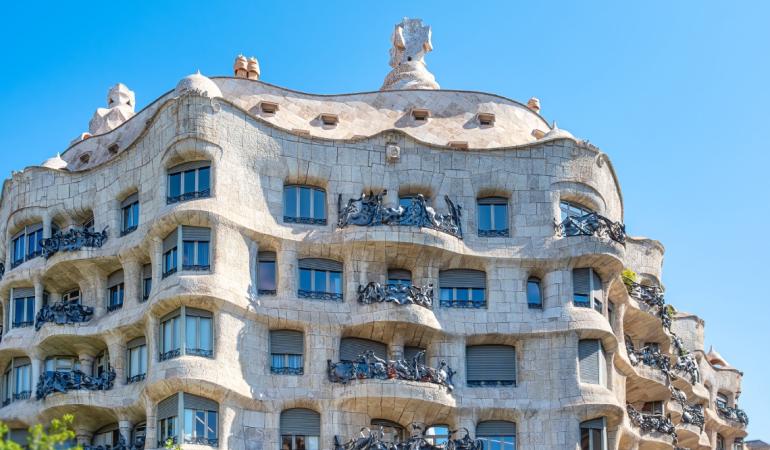Barcelona is a city full of famous fountains that characterize it and make it so special. Hola Barcelona takes you!

The fountain of Canaletes
Most likely you have passed this fountain so characteristic of the city and you have not recognized it. Many people do not know the history behind the fountain of Canaletes, located at the exit of the Plaça Catalunya metro station, at the top of La Rambla. It may go unnoticed as another regular fountain, but it must be remembered that it is more than that.
The iron monument has four water nozzles and the coat of arms of Barcelona, above which there is a four-armed lantern. The legend says that if you drink its water, you will surely retun to the city of Barcelona. The story behind this its because, in the past, the fountain was located in front of one of the city's gates, the Porta of Santa Anna.
This fountain is also very well known among Barça fans, since it has been, for many years, the point where the culers, as the fans of this team are called, gather to celebrate the titles that the club wins.
- How to get there with Hola Barcelona: bus, metro, FGC, Rodalies and hop on hop off Barcelona (blue and red route).
The Magic Fountain of Montjuïc
The Magic Fountain is one of the last works to be made inside the Exposició Universal of 1929. It was built by the engineer Carle Buigas, who had the great idea of designing a different concept from the traditional fountain. His artistic proposal resided in a fountain with several fountains, which pumped water out in changing forms. It has 4.500 lights bulbs and 3.600 tubes with which it puts on huge music and color shows for most of the year.
- How to get there with Hola Barcelona: bus, metro and FGC.
The fountain of Santa Anna, the oldest in Barcelona
Built in 1356 and located at the confluence of Carrer de Cucurulla and Plaça de Santa Anna, it is the oldest preserved fountain in the city. It was build together with a drinking trough on the occasion of the great movement of horses and mules that passes through the area.
With its construction a house was demolished and a wide and open space was created to urbanize the area. In 1807 the reform of the fountain began, to make it taller and with more presence, with a rectangular perimeter and three taps. Later, a second refurbishment was carried out in 1917 with the addition of ceramic panels and vases on top.
- How to get there with Hola Barcelona: bus, metro, FGC, Rodalies and hop on hop off Barcelona (blue and red route).
Cascada Monumental - Parc de la Ciutadella
The Cascada Monumental, located in the Parc de la Ciutadella is one of the main monuments of interest in the park and captures much of the tourist attention. It was designed by Josep Fontseré, in 1875, and was inaugurated in 1881. Some decorative details are attributed to the help provided by a very young Antoni Gaudí at the time.
The waterfall presents many ornamental elements of Catalan artists of the late nineteenth century. The main element is the Birth of Venus and, at the top, the chariot of the Aurora. At the bottom we finde four faucets that protect Venus.
- How to get there with Hola Barcelona: bus, metro, Rodalies and hop on hop off Barcelona (red route).
These are some of the best known fountains in Barcelona, but there are many more, such as Passeig de Gràcia or Les Tres Gràcies. They are small special parts of the city and have a charm that is worth a visit. Don't miss the opportunity and discover them all. Hola Barcelona takes you!
